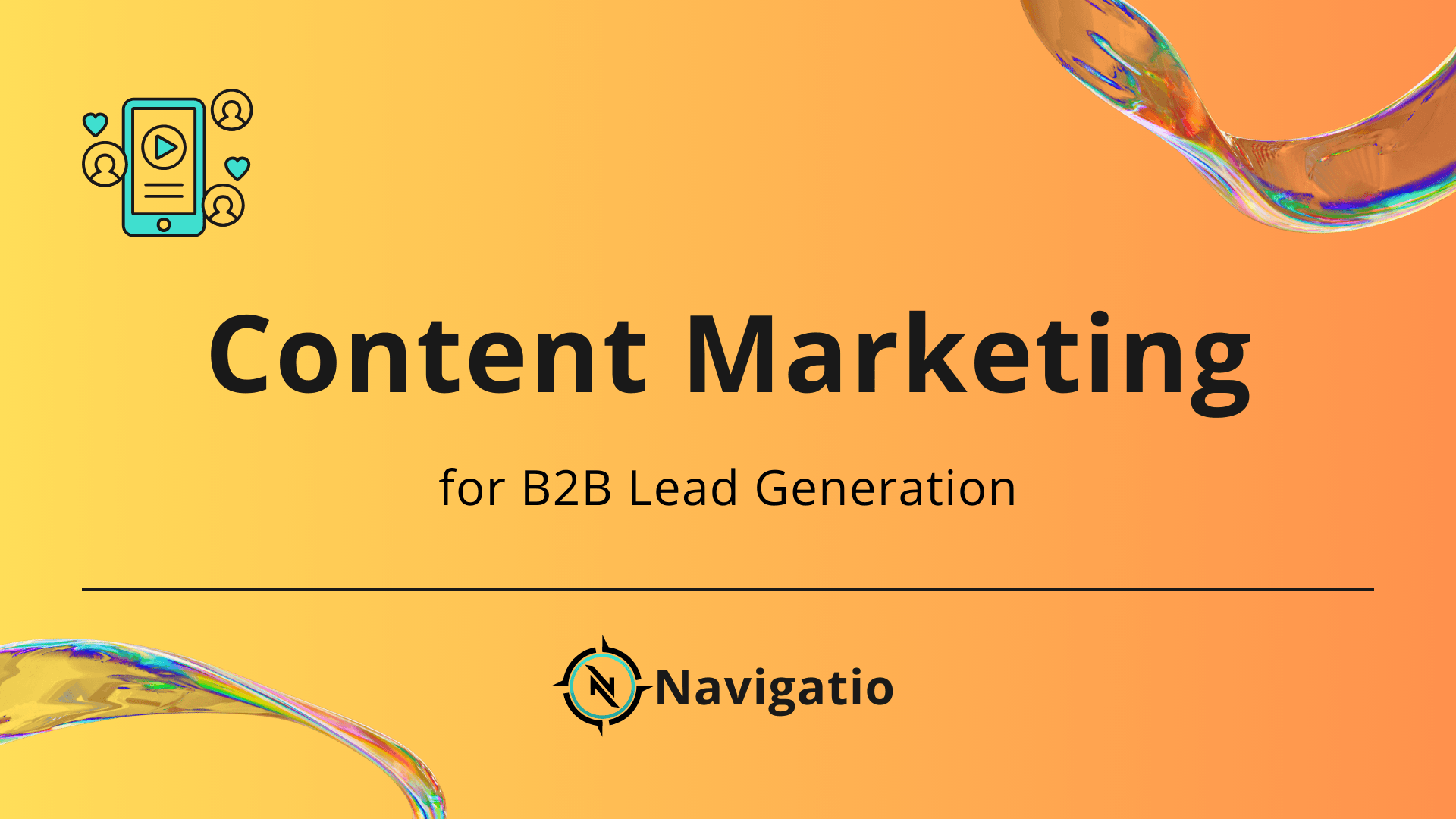In today’s B2B landscape, content marketing is the heartbeat of lead generation. Unlike traditional ads, content marketing builds trust, delivers value, and connects with potential customers long before they’re ready to buy. This strategy creates a two-way dialogue between brands and their audience. B2B buyers, who are increasingly self-directed, value content that informs, solves, and addresses their unique challenges. The majority of B2B buyers rely on content as an essential part of their decision-making process. By providing targeted content that speaks to their specific pain points, companies can attract, engage, and convert leads more effectively.
For B2B companies, the buying process can be complex and require nurturing over time. Content marketing is a non-intrusive way to engage prospects, educate them, and build trust, which can lead to conversions down the road:
- Building Trust: Providing valuable insights positions your company as an industry authority and trusted advisor.
- Brand Awareness Increasing: Educational content has a broader reach, exposing your brand to a larger audience.
- Generating Qualified Leads: Targeted content attracts visitors who are genuinely interested in your solution.
- Improved SEO: Quality content that answers relevant questions boosts your site’s search engine ranking, increasing visibility to potential leads.
How to implement Content Marketing into your business strategy?
- Identify Your Target Audience and their Pain Points
Understanding your ideal customer profile (ICP) and mapping out their journey is the foundation of effective content marketing. Identify the key stages your leads go through (from awareness to decision) and tailor content to each step:
- Awareness Stage: Use blog posts, guides, or infographics to educate on industry trends or challenges.
- Consideration Stage: Publish case studies, product comparisons, or white papers that explain how your solutions address their problems.
- Decision Stage: Offer product demos, testimonials, or free trials to help the lead make a final choice.
By aligning content with your buyer’s journey, you’ll be able to deliver the right message at the right time, keeping your brand top of mind throughout the decision-making process.
- Create Valuable, Targeted Content
Social media is an excellent channel for distributing content and engaging with your target audience. LinkedIn, for instance, is an ideal platform for B2B content, offering tools like LinkedIn Ads and LinkedIn Groups to target your ICP precisely. Different types of content resonate at different stages of the buyer’s journey:
- Top of Funnel (Awareness): Use blog posts, social media posts, and infographics to introduce prospects to your brand and establish yourself as an industry thought leader.
- Middle of Funnel (Consideration): At this stage, offer in-depth guides, whitepapers, or webinars that provide more detailed solutions to their challenges.
- Bottom of Funnel (Decision): Case studies, testimonials, and product comparisons help prospects decide on your solution over others.
Pro Tip: Focus on addressing specific questions or concerns your target audience might have, showing how your product or service solves real business challenges.
- Use Gated Content for Lead Generation
Not every piece of content should be freely accessible. Gated content (such as downloadable white papers, in-depth reports, or exclusive webinars) offers valuable insights in exchange for a lead’s contact information. This strategy helps you identify qualified leads interested in your offerings. To encourage downloads, make sure your gated content addresses a pressing industry problem and showcases your expertise.
- Leverage Social Proof and Case Studies
Social proof helps prospects trust that your solution is effective. Case studies and testimonials are particularly impactful in B2B because they showcase real-life applications and results. A well-crafted case study that highlights how your product solved a client’s pain point can lead to higher conversions.
Pro Tip: Create a dedicated section on your website for case studies and testimonials, making it easy for potential leads to find and engage with success stories.
- Implement Personalized Email Marketing
Email remains a powerful B2B marketing tool when used correctly. With personalization techniques, email marketing can nurture leads over time, delivering tailored content that aligns with the interests and needs of your prospects. Use email automation to send relevant resources, product updates, or exclusive insights, and segment your audience to ensure that each email speaks directly to their unique challenges.
- Repurpose Content Across Channels
Creating content takes time, so maximize its reach by repurposing it. For example, a blog post can be turned into a LinkedIn article, an infographic, or a series of social media posts. Webinars can be repurposed into blog posts, short clips, or infographics. Repurposing not only saves time but also expands your content’s reach across different platforms.
- Optimize for SEO to Improve Visibility
Search engine optimization (SEO) is critical to making sure your content reaches the right audience. By optimizing content with keywords related to your industry, you increase the likelihood of appearing in search results. Focus on:
- Keyword Research: Use tools to identify keywords and phrases that your target audience searches for, then incorporate them naturally into your content.
- On-Page SEO: Optimize headings, images, meta descriptions, and internal links.
- Content Clusters: Group related content to demonstrate expertise on particular topics and boost your site’s relevance for search engines.
Pro Tip: Write for humans first but keep search engines in mind. Use keywords naturally, and focus on creating valuable content that genuinely helps your audience.
To sum-up
Content marketing has proven itself a powerful force for B2B lead generation. When combined with a strategy for social media engagement and email personalization, content marketing becomes a multi-channel powerhouse, connecting with prospects through the mediums they value most. As businesses continue to prioritize relationship-building, content marketing stands as a valuable tool for sustainable growth.
Ultimately, this approach doesn’t just aim to convert leads – it creates meaningful customer relationships that last. With a well-implemented content marketing strategy, companies position themselves as trusted advisors, offering consistent, high-value interactions. B2B organizations that embrace this approach will stand out in their industries, paving the way for ongoing success and building connections that transform leads into loyal clients.
